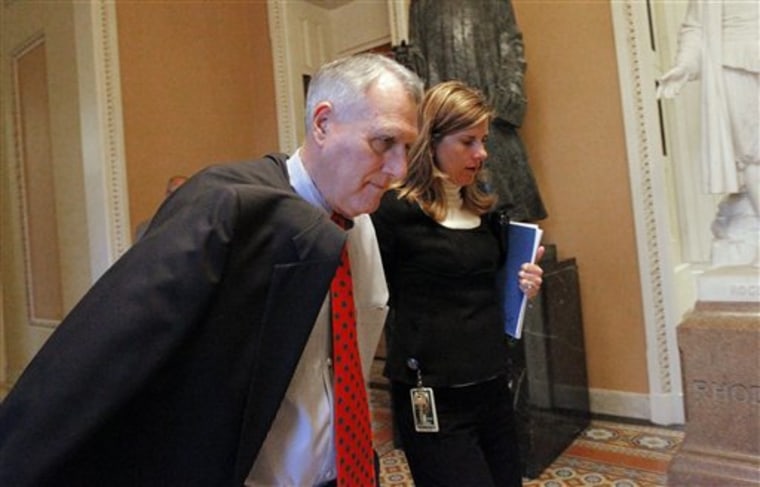Republicans reluctant to quickly ratify a nuclear weapons deal with Russia said Tuesday the Obama administration had addressed some of their concerns, raising the prospect for Senate approval of the landmark treaty.
President Barack Obama has insisted that completion of the treaty is a national security imperative and he argued for the pact at a White House meeting with congressional leaders on Tuesday.
"We need to get it done," Obama told reporters after the morning session.
Republicans, led by Sen. Jon Kyl, R-Ariz., have rejected the president's contention that the treaty must be dealt with during Congress' lame-duck session, arguing that the Senate has more pressing business and several issues on the nuclear deal remain unresolved.
Sen. Bob Corker, R-Tenn., a member of the Foreign Relations Committee, said Tuesday that administration officials responded late Monday night to several matters raised by Kyl and himself about modernization of the remaining nuclear arsenal and sufficient funds for safeguarding the stockpile.
"I thought they did a good job. I think it's continuing to evolve in a good way as it relates to modernization," Corker said in an interview. He later added, "Could we finish? I think it's possible that we could."
Kyl and Corker's concerns
Kyl and Corker had spelled out their concerns about nuclear modernization in a seven-page letter to GOP colleagues last week.
The treaty would reduce the limits on strategic warheads held by the United States and Russia to 1,550 for each country from the current level of 2,200 and would establish a system so each country could inspect and verify the other's arsenal.
In addition to their concerns about modernization, Republicans also have argued that the treaty would limit U.S. missile defense options.
Obama needs 67 votes in the 100-person Senate to win ratification. The administration's political calculation becomes more difficult in the next Congress as the Republicans increase their Senate number.
Sen. John McCain, R-Ariz., first raised the possibility of working with the White House, a glimmer of hope for proponents after weeks of uncertainty. Other Republicans also signaled they were flexible.
"I believe that we could move forward with the START treaty and satisfy Senator Kyl's concerns and mine about missile defense and others," McCain said on ABC's "Good Morning America."
Sen. George Voinovich, R-Ohio, who earlier this month questioned the treaty's impact on the former Soviet satellite nations, told reporters, "I'd like to get it done, but in my conscience I want to feel it's the right thing to do."
The tax issue
Republicans laid out a possible agenda for the waning weeks of the year that included tax cuts, legislation to fund the government and the treaty. It did not include efforts to repeal the ban on gays in the military and immigration legislation.
"I think the view — the unanimous view of Senate Republicans is let's take care of the tax issue; let's take care of how we're going to fund the government for the next 10 months; and then if there's time left for other matters, it will be up to the majority leader, Senator Reid, to decide whether we turn to other things before we adjourn for the year," said Senate Minority Leader Mitch McConnell, R-Ky.
Sen. Lindsey Graham, R-S.C., indicated that the administration and Democrats may have to scuttle issues popular with the liberal base in exchange for the treaty.
"If you want to check political boxes," Graham said, "then you're going to leave a lot of good policy on the table."
